Nội Dung Chính
(Page
II. LANGUAGE
Pronunciation
Intonation
1. Listen to these sentences. Pay attention to the intonation and repeat.
1. I'll also try to bring snacks with less packaging.
2. What's an eco-friendly fieldtrip?" 3. Can we bring snacks?
💡Remember!
- Statements often have a falling tone at the end.
- Wh-questions often have a falling tone at the end.
- Yes-No questions often have a rising tone at the end.
2. Work in pairs and role-play this conversation. Pay attention to the intonation. Then listen and check.
Mum: Have you packed for the trip tomorrow?
Mai: Yes, I have.
Mum: Why are you taking so little food?
Mai: Because I don't want to leave litter behind. It's not good for the environment.
Mum: That's a good idea.
(Page 112)
Vocabulary
Ecotourism
1. Below is what ecotourists do. Match each sentence on the left with its explanation on the right.
| 1. I am responsible for protecting the environment. | a. I know that when I travel, I may damage the environment. |
| 2. I am aware of the damage I may cause to the environment. | b. I understand it is my duty to protect the environment. |
| 3. I help people learn about the environmental impact of tourism. | c. I buy handmade things to help local artists and craftsmen or craftswomen earn some money and introduce their culture to more people. |
| 4. I help local businesses make a profit. | d. I help local people earn some money by using local services and buying local products. |
| 5. I buy traditional arts and crafts to help local culture and businesses. | e. I tell people about the positive and negative effects of tourism on the environment. |
2. Complete these sentences with the highlighted words in 1.
1. We can help local artists make a_____ by buying handmade arts and _____.
2. Many tourists are not _____ of the _____ of their actions on the local community.
3. Both local people and tourists should be for protecting the environment.
Grammar
Conditional sentences Type 1 and Type 2
1. Decide whether these statements can be real (R) or not (N).
| R | N | |
| 1. If I were a bird, I would fly. | ||
| 2. If we work hard, we will get good marks. | ||
| 3. If my parents were 10 years younger, they would travel around the world. | ||
| 4. If it rains tomorrow, we will stay at home. |
💡Remember!
Conditional sentences Type 1 talk about real situations in the present or future that we believe are possible or likely to happen.
If + present simple, ... (will)...
Example: If you work hard, you will pass the exam.
Conditional sentences Type 2 talk about imaginary situations that are impossible or unlikely to happen.
If+past simple, ... (would)...
Example: If I were a bird, I would fly.
Note: We can use were instead of was after If in Conditional sentences Type 2.
2. Put the verbs in brackets in the correct forms.
1. If tourists buy local products, more of their money (stay) in the community.
2. If we lived in the countryside, we (grow) our own vegetables.
3. If my grandmother (be) _____ still alive, she (be) _____ a hundred today.
4. If people (give) _____ up flying, they (reduce) _____ their carbon footprint.
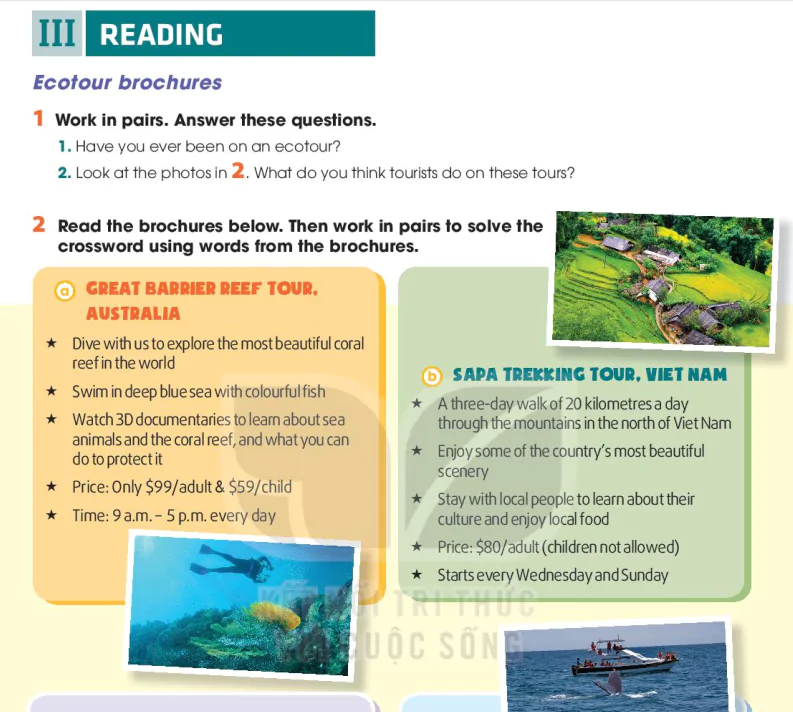
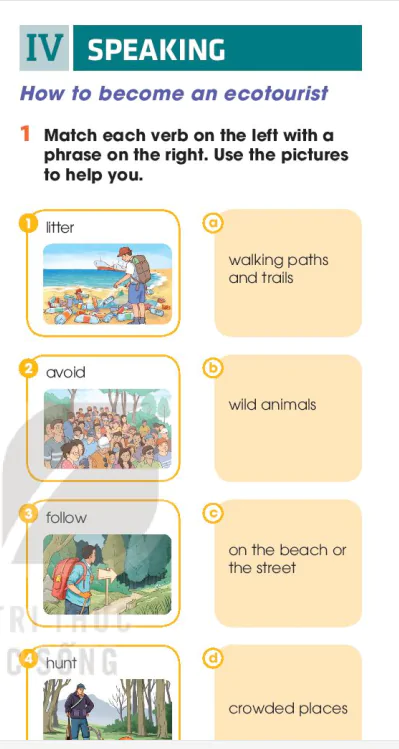
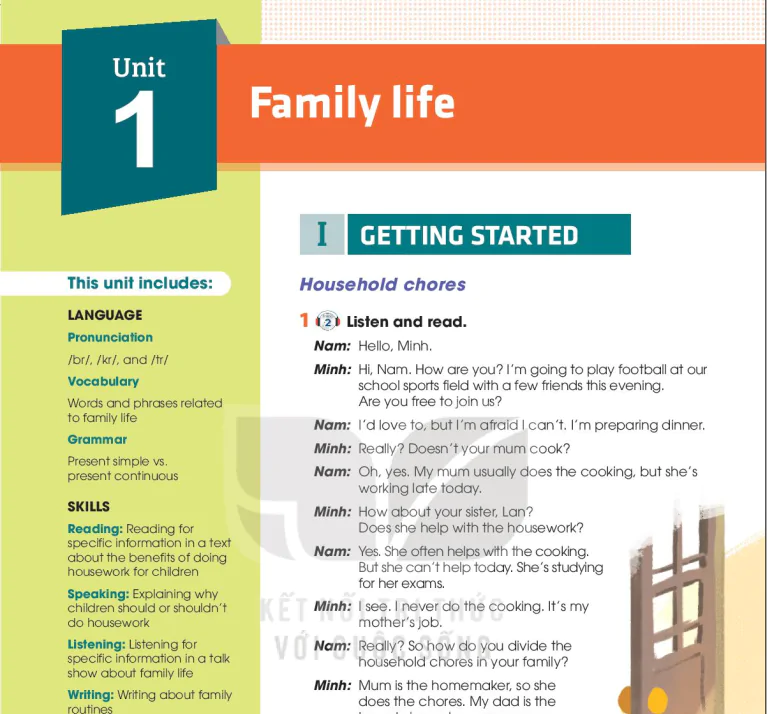
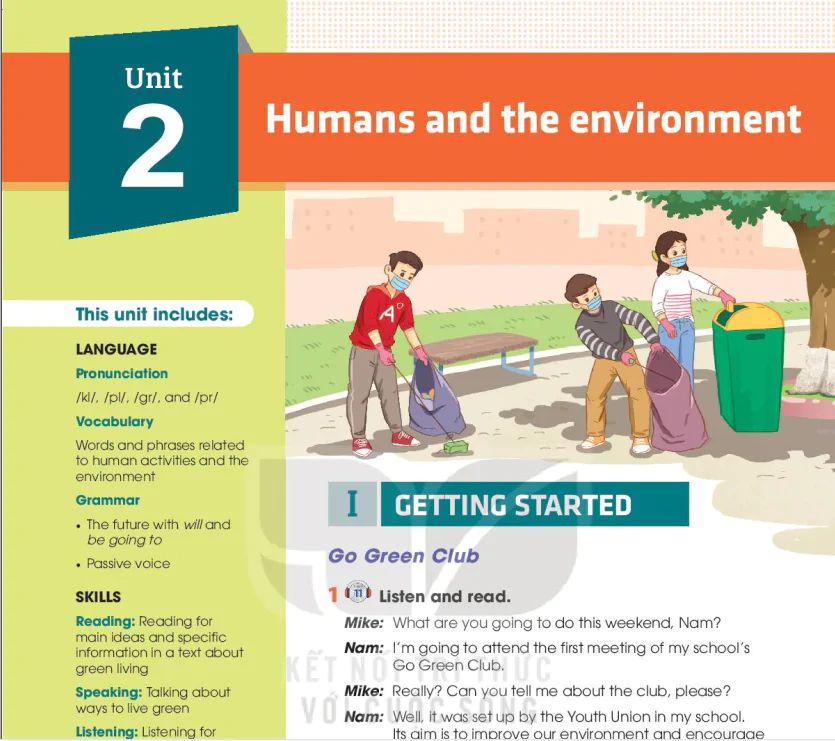
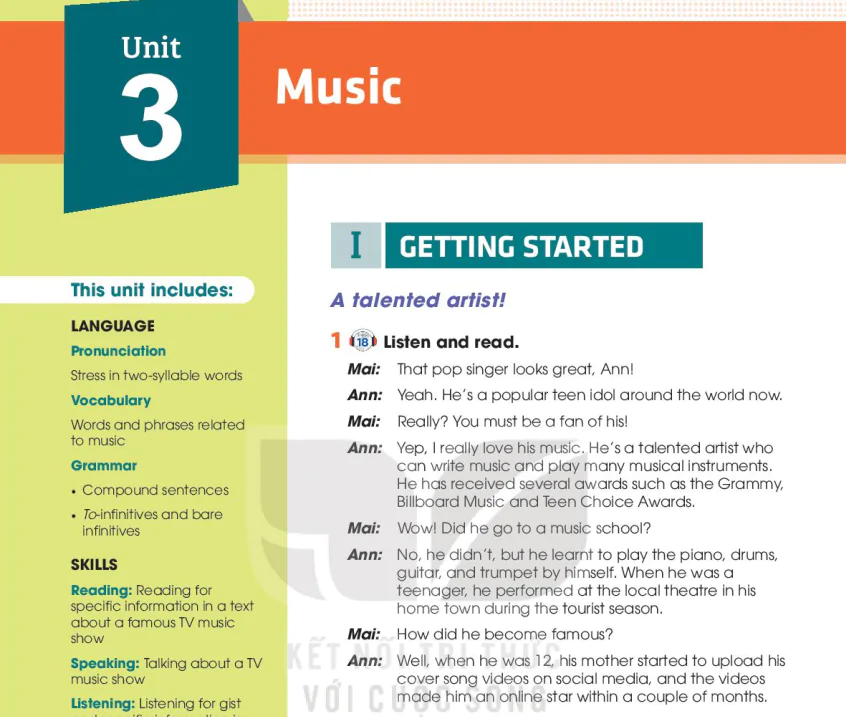
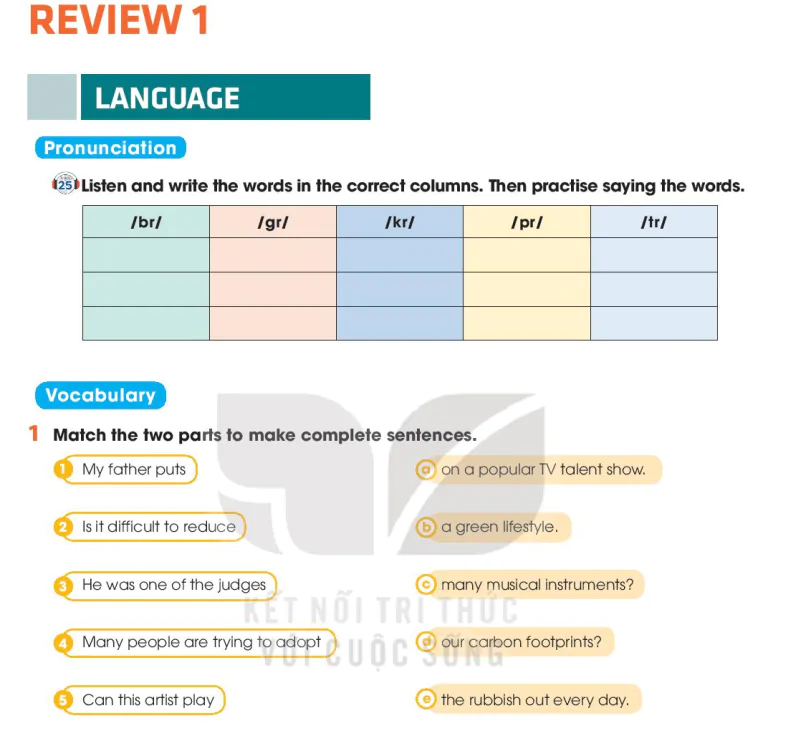
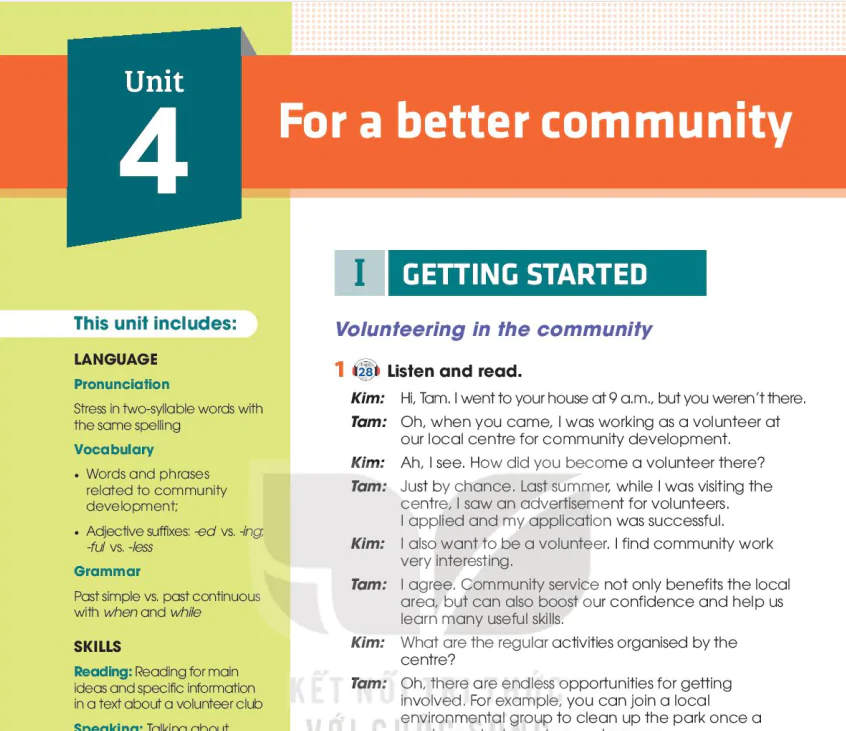
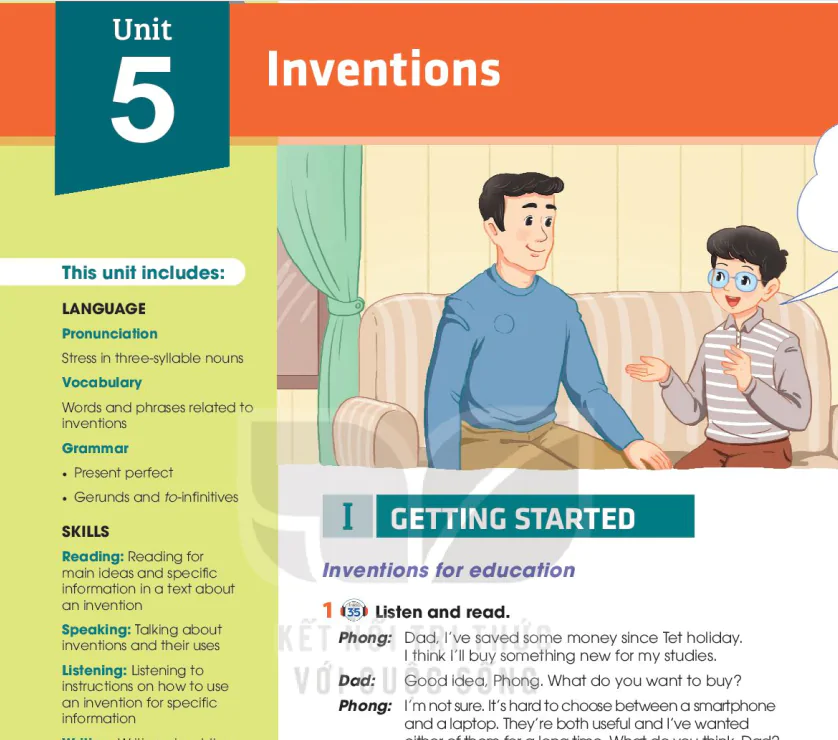
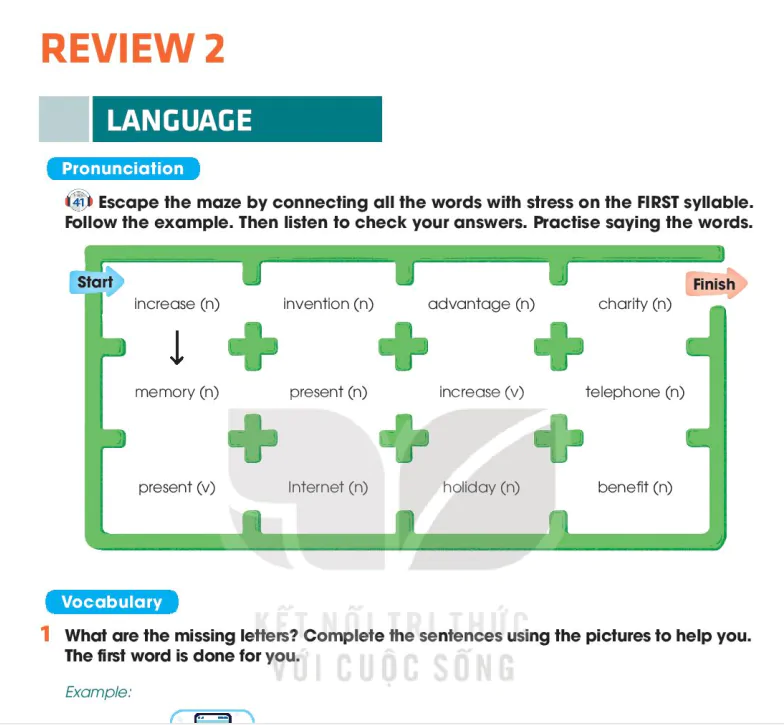
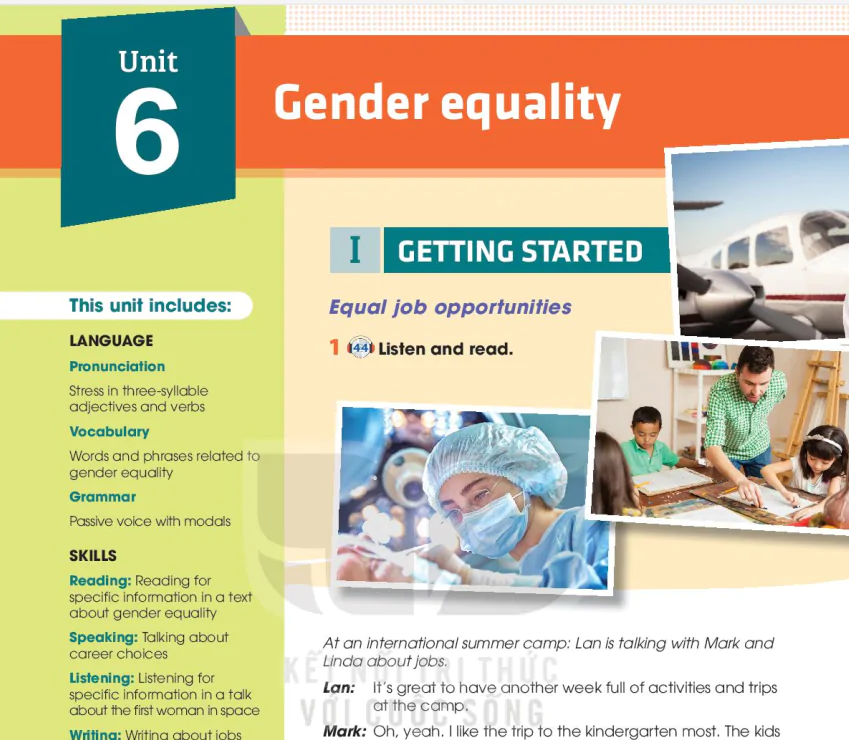
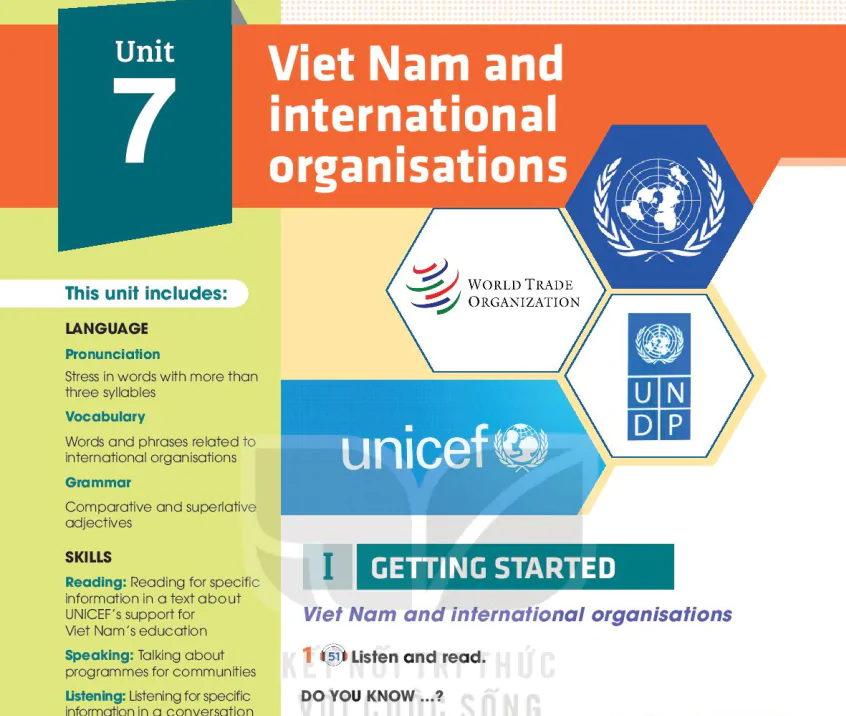
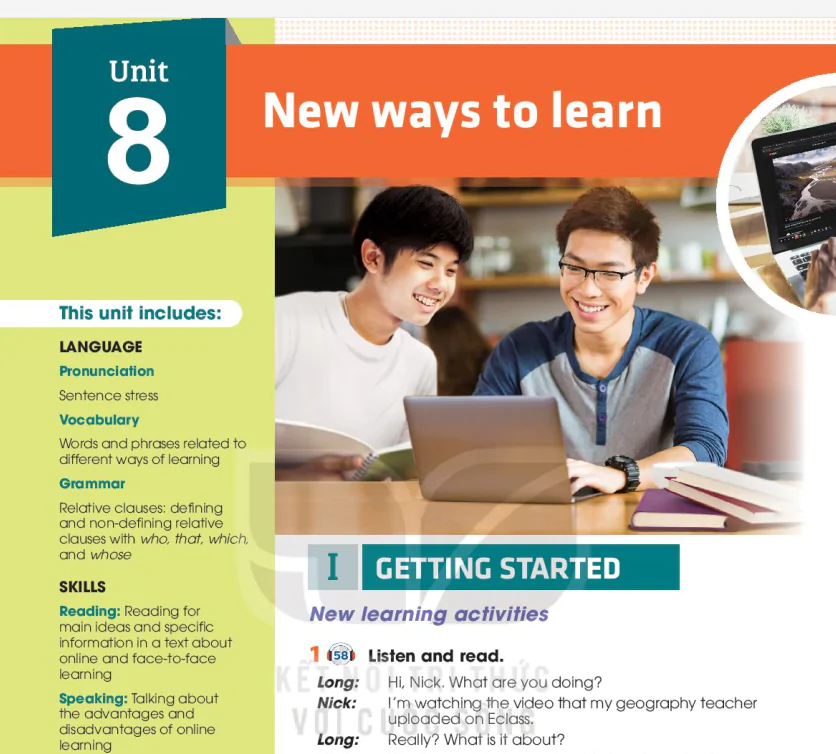
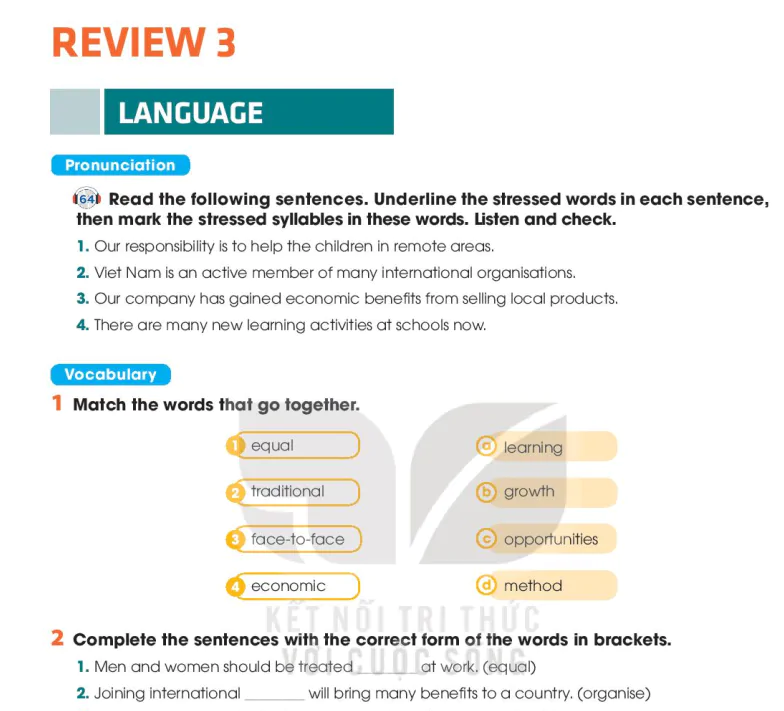
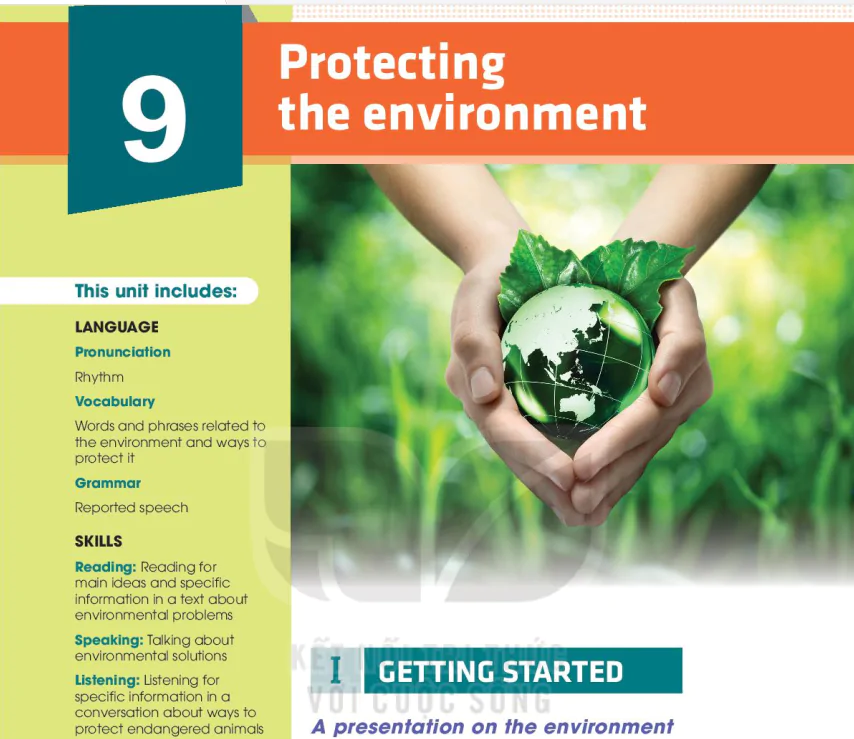
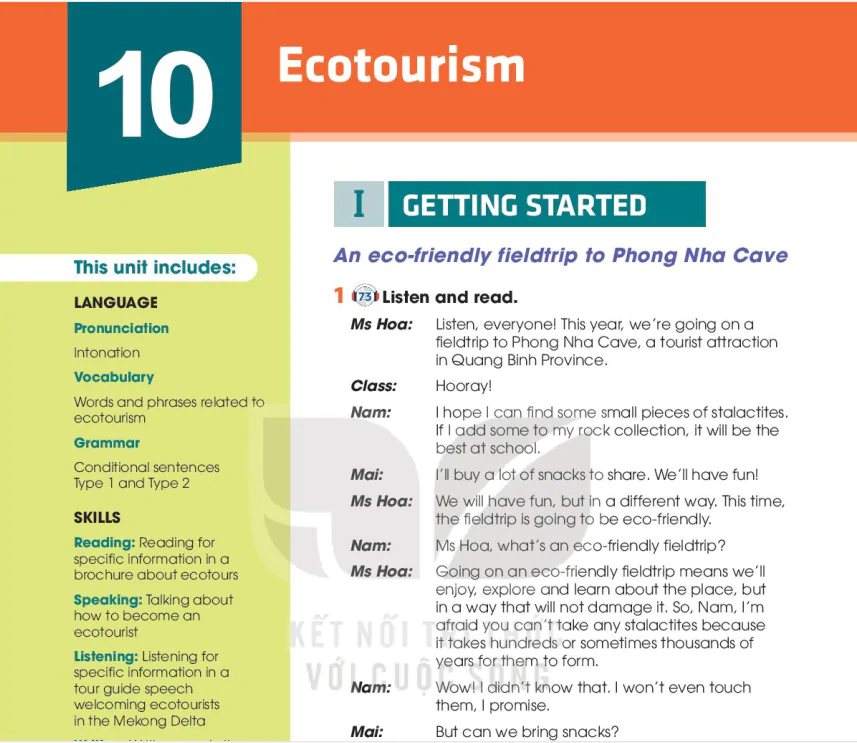
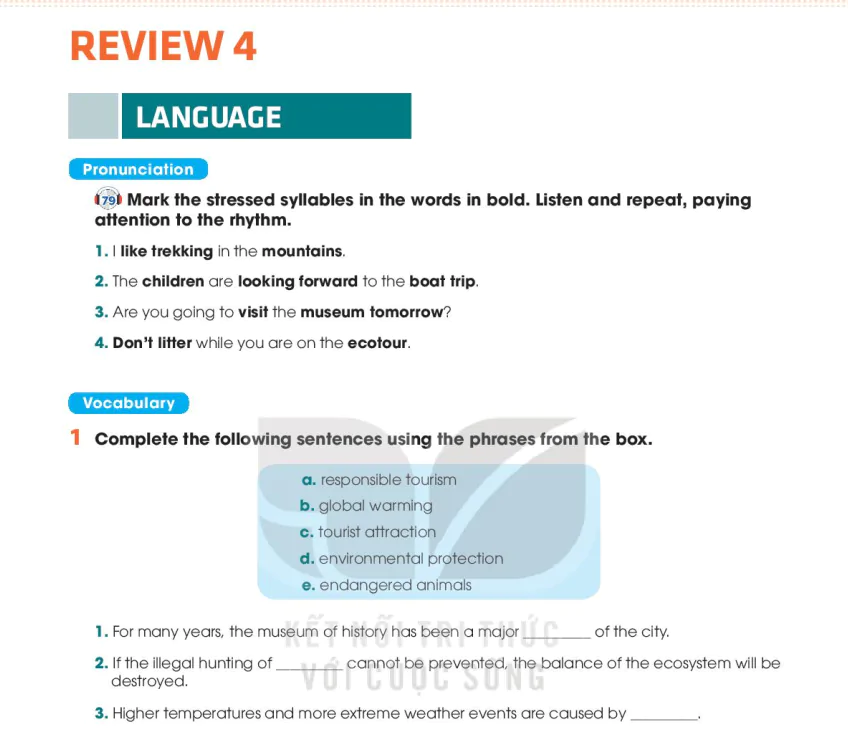
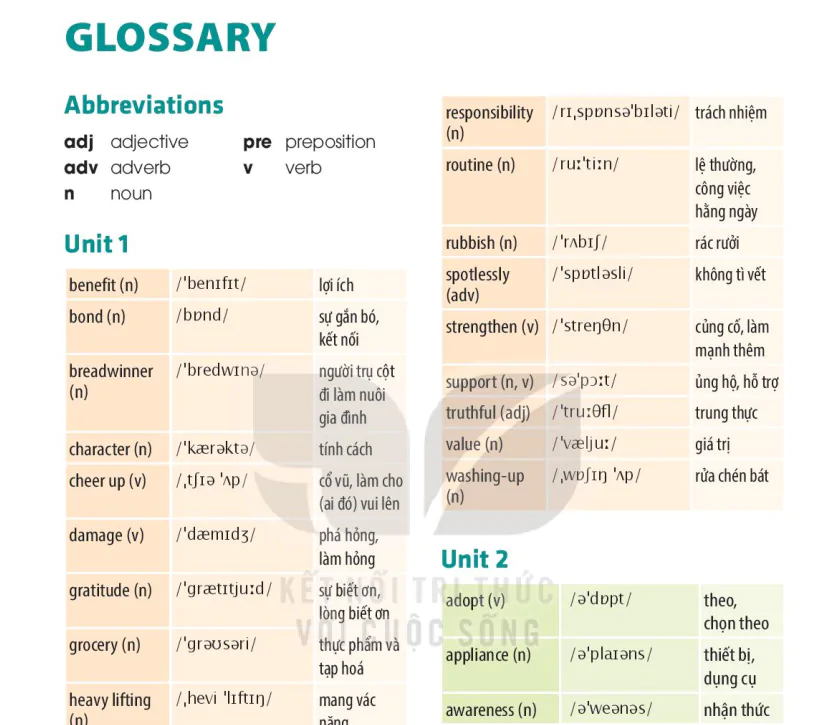
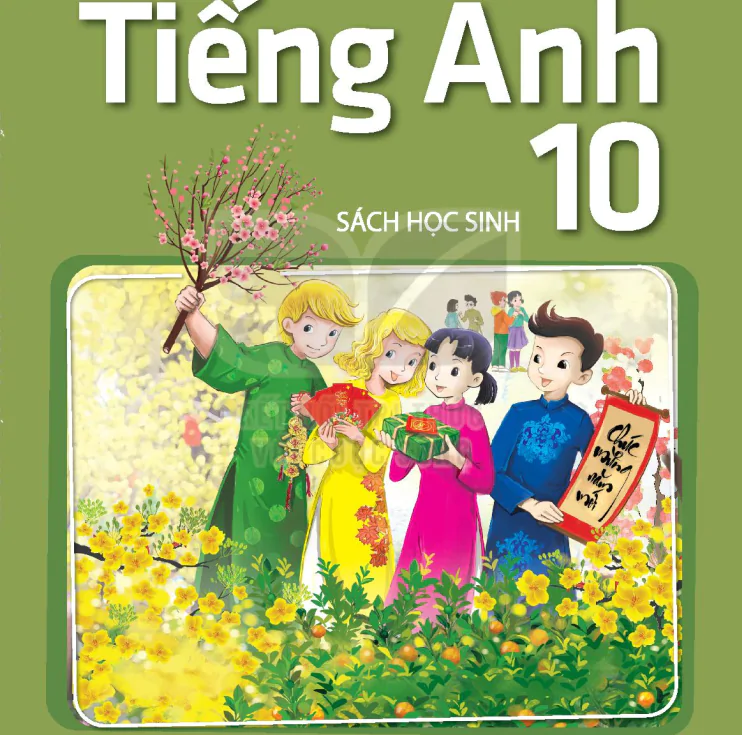

















Bình Luận
Để Lại Bình Luận Của Bạn